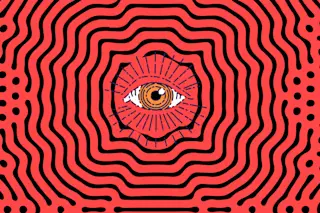We usually associate hallucinations with mental illness or recreational drugs, but many mentally healthy people hallucinate with no help from psychedelics — maybe as many as 1 in 20 of us, according to at least one analysis. You’ve probably had them yourself. If you’ve ever heard a text alert only to find there was no message, or felt a phantom vibration in your pocket when you heard your cell phone ring from the table across the room, you’ve had a kind of hallucination.
“These sorts of experiences exist on a continuum, from the feeling that the phone has rung when you’re expecting an important call all the way to full-blown visual and auditory hallucinations,” says Philip Corlett, a cognitive neuroscientist at Yale University.
To understand hallucinations, we first have to take a look at how vision works. And it doesn’t work quite the way you may think it does.
In ...















